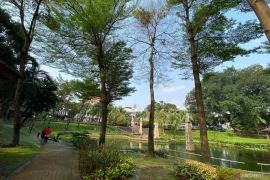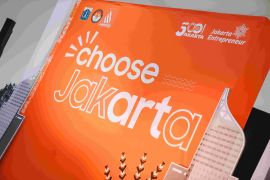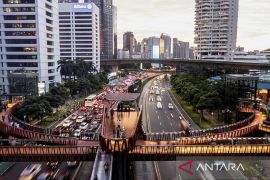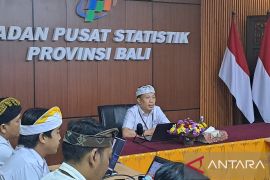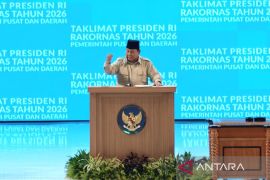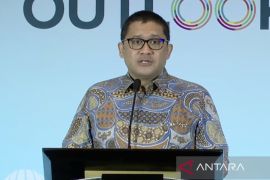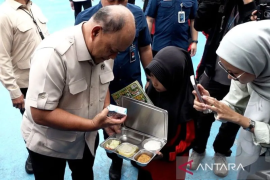Jakarta, which started from a traditional port in the past and is now Indonesia's capital and business center, will lose its status as the state capital city.
However, Jakarta's role as an economic center will not disappear even after hundreds of years, especially after Law No. 3 of 2022 concerning the National Capital was issued.
Currently, Jakarta has a more ambitious target to become a global city like any other in the world, such as Shanghai, New York, Tokyo, and London.
The Jakarta Smart City management drew attention to several aspects that need to be fulfilled if Jakarta is looking to achieve such an ambition.
Firstly, Jakarta needs to have a well-established and globally connected economic sector. One indicator to be a global city is Jakarta companies being listed in the world's top 500 companies.
Second, the development of skilled workers in the field of services as well as the development of research and innovation. Jakarta needs to have its own characteristics in the field of information technology.
Third, Jakarta needs to be a comfortable, livable, and safe city, attracting people from parts of the world to visit and conduct activities that can benefit the city's economy.
Fourth, apart from being an economic center, Jakarta must be a popular tourist destination, like Singapore or London.
Fifth, Jakarta needs to be clean and have a sustainable environment, supported by transportation connectivity, both within the city and intercity, to ease people's movements and reduce traffic.
Finding balance in Jakarta
Jakarta is projected to sink due to rising sea levels and increasing land subsidence due to underground water exploitation.
Of course, this condition is not supportive of Jakarta pursuing its ambition to be a global city, and there are factors that contribute to making the prediction even more real, namely continuous construction, climate change that causes sea levels to rise, and land subsidence.
Meanwhile, it is a fact that some spots in Jakarta experience flooding every rainy season. The Meteorology, Climatology, and Geophysics Agency (BMKG) made a record about major floods that hit Jakarta from 1918 to the present.
In that record, the BMKG noted that most floods emerge in Jakarta every February or during the rainy season.
In addition to the BMKG record, the Indonesian Navy's Hydro-Oceanography Center publishes the coastal flood calendar.
Initially, the calendar was used for navigation purposes at sea, but as it developed, the calendar is currently used as a tool for flood mitigation steps.
Jakarta has taken steps to anticipate the arrival of floods, such working together to clean the waterways.
This mass movement usually involved thousands of people and hundreds of heavy equipment.
Some reservoirs to accommodate surplus rainwater and prevent floodwaters from flowing into the city were also revitalized.
In addition to flooding, Jakarta often grapples with severe air pollution due to exhaust gases from motor vehicles, industry, and prolonged drought. Air pollution declines health quality due to respiratory infections, as reported by the Jakarta Health Office.
Owing to the cooperation of various parties, including the central government, pollution levels have now decreased. Some efforts to tackle air pollution include giving tickets to vehicle owners failing the emission test, intensifying urban farming, adding electric buses, and spraying water mist into the air.
In Gubernatorial Regulation No. 31 of 2022 concerning Jakarta's detailed spatial planning, the city seeks to integrate residential areas to improve environmental quality.
The regulation was issued to realize decent housing areas along with overcoming environmental problems in Jakarta, such as reducing pollution starting from residential areas.
It includes the provision of retention ponds, infiltration wells, principles of zero runoff and zero delta Q, waste recycling, and prohibiting the use of groundwater.
To facilitate metropolis humans
Jakarta's development should also focus on improving human quality in the efforts to become a global city.
As a city that is a meeting point of cultures from regions across the country, a platform to express, interact, and conduct activities is deemed necessary.
The Jakarta Office of Human Settlements, Spatial Planning, and Land stated that public spaces need to be sustainable, accessible, inclusive, and safe to facilitate social interactions and cultural and recreational activities.
The Jakarta provincial government has built green open spaces, such as plazas and sports centers, and offered incentives for developers to build public spaces.
Jakarta also has the JakSehat, a health information application, and encourages awareness of mental health through the Sehat Jiwa program.
Although the preparation of infrastructure has been underway, building the city residents' habits to behave appropriately in a global city should be intensified, such as by promoting awareness of waste production.
The ambition to make Jakarta a global city needs to be achieved holistically and requires the participation of all groups, including the people.
Related news: Jakarta to become sensing city, uses sensors to boost public services
Related news: Envisioning Jakarta's economic influence after capital relocation
Translator: Mecca P, Kenzu
Editor: Azis Kurmala
Copyright © ANTARA 2023

